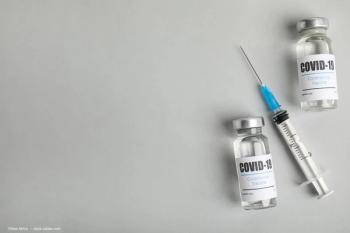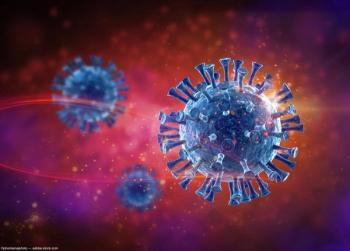
Vaccination, positive COVID-19 test could lead to increased risk of arterial thrombotic events
A team of UK researchers further examine the rare thrombocytopenia and thromboembolic events occurring after COVID-19 vaccinations.
While it has already been recognized that rare thrombocytopenia and thromboembolic events have occurred after COVID-19 vaccinations, a team of UK researchers have taken it to the next step by discovering an increased risk of thrombocytopenia, venous thromboembolism, and other rare arterial thrombotic events following the first dose of the ChAdOx1 nCoV-19 vaccine (Oxford-AstraZeneca).
The team also found an increased risk of arterial thromboembolism and ischemic stroke after the first dose of the BNT162b2 (Pfizer-BioNTech) vaccine,1 according to first study author Julia Hippisley-Cox, MBChB, MD, professor of clinical epidemiology and general practice, Nuffield Department of Primary Health Care Sciences, University of Oxford, Oxford, UK.
Hippisley-Cox and colleagues undertook a self-controlled case series study using national data on about 30 million individuals vaccinated in the UK from December 1, 2020 to April 24, 2021.
All individuals had been vaccinated with the first dose of 1 of the 2 vaccines.
About 1.75 million had tested positive for the SARS-CoV-2 virus.
The primary study outcomes were hospital admission or death associated with thrombocytopenia, venous thromboembolism, and arterial thromboembolism within 28 days of the first dose of 1 of the vaccines and a positive test for the SARS-CoV-2 virus.
Secondary outcomes were the occurrence of cerebral venous sinus thrombosis, ischemic stroke, myocardial infarction, and other rare arterial thrombotic events.
The investigators identified an increased risk of thrombocytopenia after the Oxford- AstraZeneca vaccination (incidence rate ratio [IRR], 1.33; 95% confidence interval [CI], 1.19-1.47 at 8-14 days) and after a positive SARS-CoV-2 test (IRR, 5.27; CI, 4.34-6.40 at 8-14 days); an increased risk of venous thromboembolism after the Oxford-AstraZeneca vaccination (IRR, 1.10; CI, 1.02-1.18 at 8-14 days) and after the SARS-CoV-2 infection (IRR, 13.86; CI, 12.76-15.05 at 8-14 days); and an increased risk of arterial thromboembolism after the Pfizer-BioNTech vaccination (IRR, 1.06; CI, 1.01-1.10 at 15-21 days) and after the SARS-CoV-2 infection (IRR, 2.02; CI, 1.82-2.24 at 15-21 days).
Secondary analyses showed an increased risk of cerebral venous sinus thrombosis after the Oxford-AstraZeneca vaccination (IRR, 4.0; CI, 2.08-7.71 at 8-14 days), after BNT162b2 mRNA vaccination (IRR, 3.58; CI, 1.39-9.27 at 15-21 days), and after a positive SARS-CoV-2 test; increased risk of ischemic stroke after Pfizer-BioNTech vaccination (IRR, 1.12; CI, 1.04-1.20 at 15-21 days) and after a positive SARS-CoV-2 test; and increased risks of other rare arterial thrombotic events after Oxford-AstraZeneca vaccination (IRR, 1.21; CI, 1.02-1.43 at 8-14 days) and after a positive SARS-CoV-2 test.
The investigators concluded that the increased risks of hematologic and vascular events that resulted in hospital admission or death were seen for short periods following the first doses of the 2 vaccines. Importantly, they noted, in the same study population, the SARS-CoV-2 infection was associated with much higher and more prolonged risks of most of the events than after vaccination.
---
Reference
1. Hippisley-Cox J, Patone M, Xue W Mei, XW, et al. Risk of thrombocytopenia and thromboembolism after covid-19 vaccination and SARS-CoV-2 positive testing: self-controlled case series study. BMJ 2021; published August 27, 2021; 374 doi: https://doi.org/10.1136/bmj.n1931
Newsletter
Don’t miss out—get Ophthalmology Times updates on the latest clinical advancements and expert interviews, straight to your inbox.





























